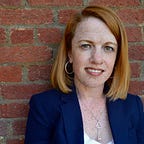The Disability Penalty or Why Your “Specialization” Is a Liability?
Credit: AffectTheVerb
Cartoonist Bob Thaves (though often misatributed) was known for the following observation about Fred Astaire and Ginger Rogers “‘Sure he was great, but don’t forget that Ginger Rogers did everything he did…backwards and in high heels.’
The same could be true for disability policy experts.
As an example: see below.
To be an expert in education of disabled students, you have to be an expert in general education pedagogy and philosophy, content, classroom practices and techniques, curriculum requirements, standardized testing and more.
To be an expert in the education of disabled students you have to know ALL of this (and anything else I’m missing) PLUS how it’s applied to students with a variety of disabilities. So how you modify a classroom for an Autistic student is different than for a student with dyslexia. And you have to know both, AND all the general education qualifications.
So why is it, when disabled people apply for a job in education, with a degree in education, they’re told they’re NOT qualified. The reality is, they’re overqualified. They have taken the same courseload as their peers, been awarded their degree held to the same standards. But society doesn’t train us to think that way.
This is true throughout the “disability policy” field. Housing, technology, healthcare, economics, labor policy. Our experts have to be not just AS GOOD as non disability policy experts, but even more qualified.
But this does not translate in terms of access to jobs and promotions. Instead how disabled professionals are treated as is “less than,” frankly in accordance with how disabled people are treated in society. Professionals with disabilities are passed over for promotions given their specificity is seen as the opposite.
What makes this behavior even more perplexing is the ramifications for innovation. The disability community observes as best practices in the field of disability policy are co-opted, Columbused, and hailed as futuristic thinking or innovation when applied to non-disabled people. In school, nary a major innovation in the public education space, has not come from the field of education of disabled students (individualized learning plans, positive behavior supports, response to intervention, multi-modal learning.) Telework, denied to disabled people in the workplace for decades as an “unreasonable accommodation,” has made it possible for work to continue during a global pandemic. Open floor plans, hailed as a “must have” in modern home design, was a best practice for those using mobility devices for years. Mask wearing and social distancing have been common practices for those with compromised immune systems and has been essential to COVID response. Climate change policy that is inclusive of people with disabilities (who both acquire disabilities as a result of climate change, and have the phenomenon exacerbate existing ones).
Note, this is true beyond the field of education policy.
To be an accessible housing expert, you need to know EVERYTHING a generalist in housing policy knows, plus all the specialized knowledge tied to disability. To focus on accessible voting, it’s the same thing. ALL the issues and general knowledge of voting PLUS the intricacies of how all the state and federal policies interact with the numerous challenges and opportunities tied to making voting accessible (both in the disability and MUGGLE sense) for voters with disabilities.
So, true believers, how do we move forward and endow disability policy experts with the respect they deserve in mainstream fields? What will it take? Or will disability experts still be seen as “less than” when their knowledge is above and beyond the mainstream standards.
Or, and this is my hypothesis, are the ableds worried we know them, way better than they know us, and treating us accordingly risks their power or authority.
Note to Reader: In 2019, Rebecca Cokley was turned down for a position as VP of Health Justice at a prestigious organization working on gender and economic justice. She was told hiring “someone like you” and your “disability background” was TOO AMBITIOUS for where the organization was looking to be.
